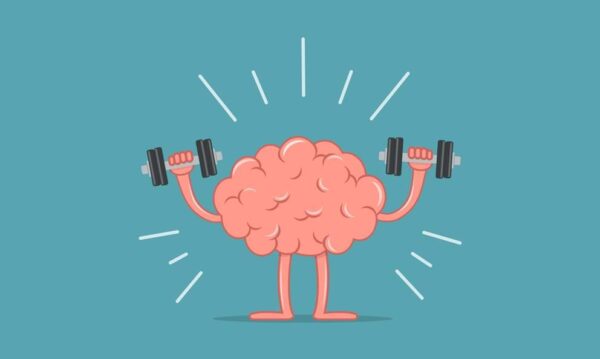Contents
- 1 The Benefits of Exercise for the Brain: Why Working Out is Great for Mental Health.
- 2 Introduction: Why Exercise is Important for Brain Health
- 3 How Exercise Improves Cognitive Function
- 4 Benefits of Working Out for Memory and Learning
- 5 Role of Exercise in Mental Illness Treatment
- 6 The Effects of Exercise on Stress and Anxiety Levels
- 7 How to Incorporate Exercise into Your Life
- 8 Conclusion
The Benefits of Exercise for the Brain: Why Working Out is Great for Mental Health.

The Benefits of Exercise for the Brain: Why Working Out is Great for Mental Health.
Are you looking for a way to boost your mental health and cognitive function? Look no further than exercise! That’s right, working out isn’t just great for your physical health – it also has incredible benefits for the brain. From reducing stress and anxiety to improving memory and focus, let’s dive into why exercise should be a regular part of your mental wellness routine.
Are you looking for a way to boost your mental health and improve your brain function? Look no further than exercise! That’s right, working out isn’t just good for your physical fitness, it has numerous benefits for the brain as well. From reducing stress and anxiety to increasing focus and memory retention, regular exercise can have a powerful impact on our cognitive abilities. So grab those running shoes or hit up that yoga class – let’s explore all the amazing ways that exercise is great for the mind!
Introduction: Why Exercise is Important for Brain Health
Exercise is great for brain health! Here are three reasons why:
1. Exercise increases blood flow and oxygen to the brain.
2. Exercise helps to reduce inflammation and improve brain function.
3. Exercise has been shown to reduce stress and improve mood.
How Exercise Improves Cognitive Function
Exercise has been shown to be beneficial for cognitive function in a number of ways. One way is by improving blood flow and oxygenation to the brain. Exercise also helps to reduce inflammation and promote neural growth and plasticity. Additionally, exercise has been shown to improve mood and reduce stress, which can lead to improved cognitive function.
It is a well-known fact that exercise is good for the body. But did you know that it is also great for the brain? That’s right, working out can actually improve your cognitive function.
How does exercise do this? Well, when you workout, your heart rate increases and blood starts flowing to your brain. This increased blood flow delivers oxygen and nutrients to the brain, which helps to keep it healthy. In addition, exercise helps to promote the growth of new brain cells and connections between cells.
There are many different cognitive benefits of exercise. For example, it can help to improve your memory, attention span, and problem-solving skills. It can also help to reduce stress and anxiety levels, and improve your mood. So if you’re looking for a way to boost your brainpower, make sure to add some exercise into your routine!
Benefits of Working Out for Memory and Learning
The benefits of working out for memory and learning are vast. Exercise has been shown to improve memory recall, increase focus and concentration, and reduce stress and anxiety. All of these benefits can lead to improved academic performance.
Exercise has been shown to improve memory recall by up to 20%. This means that if you are having trouble remembering something, working out may help you recall it. In addition, exercise has been
shown to increase focus and concentration. This can be beneficial when taking tests or completing other assignments that require your full attention. Exercise can reduce stress and anxiety. This is important because stress and anxiety can interfere with memory and learning. If you are feeling stressed or anxious, try going for a walk or doing some other form of exercise to calm down.
Role of Exercise in Mental Illness Treatment
Exercise has long been known to be beneficial for physical health, but recent studies have shown that it can also be helpful in treating mental illness. Exercise can help to improve mood, reduce anxiety and depression, and increase cognitive function.
Aerobic exercise has the most benefits for mental health, but any type of exercise can be helpful. It is thought that the benefits of exercise come from the release of endorphins, which have mood-boosting effects. Exercise also helps to reduce stress by reducing levels of the stress hormone cortisol.
There is some evidence that exercise can be as effective as medication for treating depression. In one study, people who exercised three times a week for 16 weeks had the same reduction in symptoms as those who took antidepressants. Other research has shown that combining exercise with therapy can be more effective than either treatment alone.
If you are struggling with mental illness, talk to your doctor about incorporating exercise into your treatment plan.
The Effects of Exercise on Stress and Anxiety Levels
Exercise has long been known to have physical benefits, but recent research has shown that it can also have significant effects on mental health. One of the most well-known benefits of exercise is its ability to reduce stress and anxiety levels.
When you exercise, your body releases endorphins, which are hormones that create a sense of euphoria and wellbeing. Endorphins also help to reduce pain signals in the brain, which can help to reduce stress and anxiety levels. In addition, exercise has been shown to increase levels of serotonin in the brain, which is a neurotransmitter that plays a role in mood regulation.
Research has shown that just 30 minutes of moderate exercise (such as walking) can significantly reduce stress and anxiety levels. So if you’re feeling stressed or anxious, try going for a walk or heading to the gym for a workout. You may be surprised at how much better you feel afterwards!
How to Incorporate Exercise into Your Life
If you’re not used to exercising, it can be tough to incorporate it into your life. Here are a few tips to help you get started:
1. Set realistic goals. Don’t try to do too much too soon – start with small goals that you know you can achieve. For example, commit to walking for 20 minutes each day, three times per week.
2. Find an activity that you enjoy. If you don’t enjoy what you’re doing, you’re less likely to stick with it. Experiment until you find an activity that feels good for you – it could be anything from yoga to running to dancing.
3. Make it easy on yourself. Choose a time of day and a location that are convenient for you, so that exercise becomes part of your regular routine. If the gym is too far away or the thought of working out first thing in the morning is daunting, find something closer to home or schedule your workouts for later in the day.
4. Set yourself up for success. Invest in some quality workout clothes and gear, so that you feel comfortable and supported while exercising. And make sure to have healthy snacks on hand, so that you can refuel after your workout and avoid temptation to indulge in unhealthy foods later on.
5. Be consistent. The key to seeing results from exercise is consistency – so make sure to stick with it! Even if you only have time for
Conclusion
Working out is not just good for physical health; it can also have a great impact on mental health. Exercise releases endorphins that make you feel happier, and its effects have been proven to help with depression and anxiety. Plus, regular exercise has been linked to improved cognition as well as better memory and focus. Taking time each day to take care of your body through exercise can pay off in the long run by improving both your mental and physical health.
